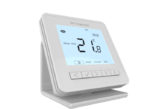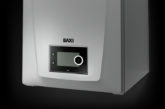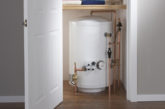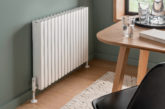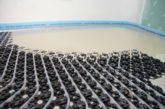
Andrews Water Heaters is advising specifiers to factor water treatment into the design stages of the hot water system to ensure peak system performance.
One year on from the publication of ICOM’s Water Quality Consideration of Domestic Hot Water Systems for Commercial Applications document, David Ridgway, Product Application Manager at Andrews Water Heaters and contributor to the guide, argues that more could be done to account for water treatment prior to the installation and commissioning of a water heater.
David highlights that the long-term implications of not treating the water that the system uses could be financially damaging to the end-user who must pay for non-routine repairs or replacements and increasing poor efficiency. Additionally, the specifier may be putting their reputation at stake by specifying the wrong appliance or water treatment device.
“Our industry has, at times, not paid close enough attention to the importance of water treatment. It is often an afterthought with best-practice treatment seen as a nice to have rather than a must have. This is in spite of poor water quality potentially resulting in energy wastage, reduced system performance, potential appliance health issues and the need for the early replacement of components. Failing to prevent or adequately control the treatment of the water could also result in the risk of exposure to legionella – exposing end-users to unnecessary risks,” David commented.
There are several considerations that must be made during the design stage that will impact the type of water treatment that is employed. For instance, the local water board should be contacted to provide specifiers with the data on the area’s water quality, the hardness of the water will dictate whether a softener or conditioner is required.
“Further consideration should be made to the issue of corrosion can occur in all systems. Some systems however, may require treatment dependent on the materials present. For example, the UK’s water distribution infrastructure still makes use of lead pipes in some areas, meaning that the local water authority could vary the dosing of phosphates in the water to protect lead pipe – impacting the performance of some appliances and devices,” David said.
Corrosion and many of the other challenges facing end-users can be controlled from the outset by adopting good system design and installing a water treatment device such as a water softener or a physical water conditioner. It is always advisable to consult with a water treatment specialist to ensure that the chosen device is compatible with the type of water heater, the make-up and the local water supply and the type of application (temperature and loading) being specified.
“Specifiers and manufacturers should work evermore closely together. Linkage at the design stage can help to ensure the chosen treatment device works to promote the longevity and health of the system. As an industry, we can maintain the life, efficiency and reliability of water systems by working together at the design stage,” David concludes.
To find out more, get in touch with your local ASM


